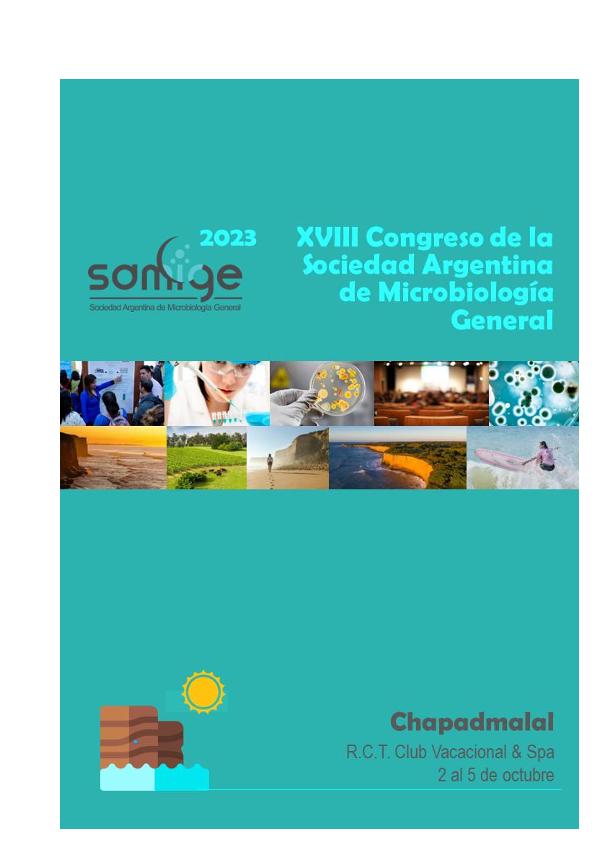Evento
Towards the sustainable production of lemons: native yeasts as biological control agents
Tipo del evento:
Congreso
Nombre del evento:
XVIII Congreso de la Sociedad Argentina de Microbiología General
Fecha del evento:
02/10/2023
Institución Organizadora:
Sociedad Argentina de Microbiología General;
Título del Libro:
Libro de resumenes del XVIII Congreso de la Sociedad Argentina de Microbiología General
Editorial:
Sociedad Argentina de Microbiología General
ISBN:
978-631-90156-1-4
Idioma:
Inglés
Clasificación temática:
Resumen
The province of Tucumán is positioned as one of the main centers of production and processing of lemons. Among the problems associated with the production of lemons, the economic losses caused by postharvest fungal infections stand out. Chemical fungicides have traditionally been applied as control and preventive measures, but their use entails numerous problems such as environmental contamination, toxicity in humans and restrictions on international markets. However, efficient and sustainable alternatives to the use of such pesticides are not known so far. Thus, the aim of this research was to search for biological control alternatives based on native yeasts, understand the associated mechanisms of action, and formulate a sustainable biocontrol agent. Biocontrol yeasts were isolated from citrus plants and lemon packinghouses. The antagonism of the isolates against Penicillium digitatum in in vitro and in vivo assays as well as the possible mechanisms of action related to biological control were determined. In addition, both liquid and solid formulations were tested. Among the yeast isolates, Clavispora lusitaniae 146stood out as it was able to inhibit P. digitatum in vitro and also to control green mold onlemons with high efficiency, both in room temperature and cold storage. Yeast 146 was ableto resist stress factors associated with the packaging process and was compatible with carnauba wax. Among the mechanisms of action, the ability to colonize wounds and the competition for space and nutrients were evidenced. C. lusitaniae depicted a broad spectrum of action in controlling green mold on other citrus fruits, such as oranges, mandarins, and grapefruit. C. lusitaniae 146 did not negatively affect the aroma perception of fruits by consumers. Moreover, it was able to remove the mycotoxin patulin from a solution. Different liquid and solid formulations were tested; being the yeast dried by lyophilization in combination with sucrose and skimmed milk the most promising. The native yeast C. lusitaniae 146 is a promising biological control agent for the control of P. digitatum in lemons and other varieties of citrus fruits. A yeast-based formulation would replace the use of chemical fungicides and promote the organic production of lemons.
Palabras clave:
LEMON
,
YEAST
,
BIOCONTROL
Archivos asociados
Licencia
Identificadores
Colecciones
Eventos(PROIMI)
Eventos de PLANTA PILOTO DE PROC.IND.MICROBIOLOGICOS (I)
Eventos de PLANTA PILOTO DE PROC.IND.MICROBIOLOGICOS (I)
Citación
Towards the sustainable production of lemons: native yeasts as biological control agents; XVIII Congreso de la Sociedad Argentina de Microbiología General; Chapadmalal; Argentina; 2023; 30-30
Compartir




